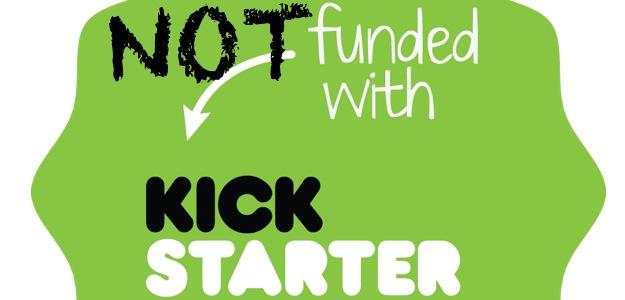 As the number of successfully-funded Kickstarter projects continue to grow (and the amount of money requested and received), the potential for abuse of the service remains a problem for both Kickstarter – and those using the service. Kristen “M.K.” Ducote and her husband, professional race car driver Chapman, are two examples of that latter point of view, having launched a lawsuit against the company for pulling the plug on their campaign just five days after launch.
As the number of successfully-funded Kickstarter projects continue to grow (and the amount of money requested and received), the potential for abuse of the service remains a problem for both Kickstarter – and those using the service. Kristen “M.K.” Ducote and her husband, professional race car driver Chapman, are two examples of that latter point of view, having launched a lawsuit against the company for pulling the plug on their campaign just five days after launch.
The Ducotes were using the platform to raise money to publish Naked Paddock, a book written by Kristen about “life, love and drama in the world of professional motorsports.” After being invited to appear on the reality TV show “Kourtney and Khloe Kardashian Hit Miami” to promote the book and the fundraising campaign to publish it, Kickstarter allegedly cancelled the campaign just days after it had gone live.
To make up for this unforeseen event, the Ducotes are suing Kickstarter for breach of contract, fraudulent inducement, and unjust enrichment. They’re also asking for more than a million dollars in restitution for damaging their reputation “by the implication to the tens of thousands of people that were marketed to view [the Kickstarter campaign] that their product… was somehow fraudulent or non-existent or unavailable.” One could only wonder how much of that money would be earmarked for the eventual publication of Naked Paddock, of course. Surely if the novel remains unpublished if the Ducotes win, then the question of reality of the book will be answered.
According to the lawsuit filed in April, the Ducotes considered the “unexpected and unexplained actions by Kickstarter” a surprise.. The lawsuit suggests that “it is almost as if Kickstarter decided to pull the plug at the exact moment they knew MK, Ducotre and [prospective publisher] War Chest needed them the most.”
Kickstarter’s response is a little less excitable, and revolves around one basic idea: The company can close down any campaign it wants, and everyone who signs up knows that because it explicitly says so in the platforms terms of service agreement. Sure enough, the Terms of Use are clear that “Kickstarter reserves the right to reject, cancel, interrupt, remove, or suspend a campaign at any time and for any reason.”
Furthermore, the ToS also points out that “Project Creators should not take any action in reliance on having their project posted,” and Kickstarter “does not guarantee that any Content will be made available through the Service.” In other words, it’ll be difficult to prove breach of contract when the contract explicitly states that the company can do exactly what it actually did. Perhaps unsurprisingly, however, no one is backing down from the threat of legal action just yet.
If this makes it to court, this could end up being a spectacular spectacle of law gone wrong.


